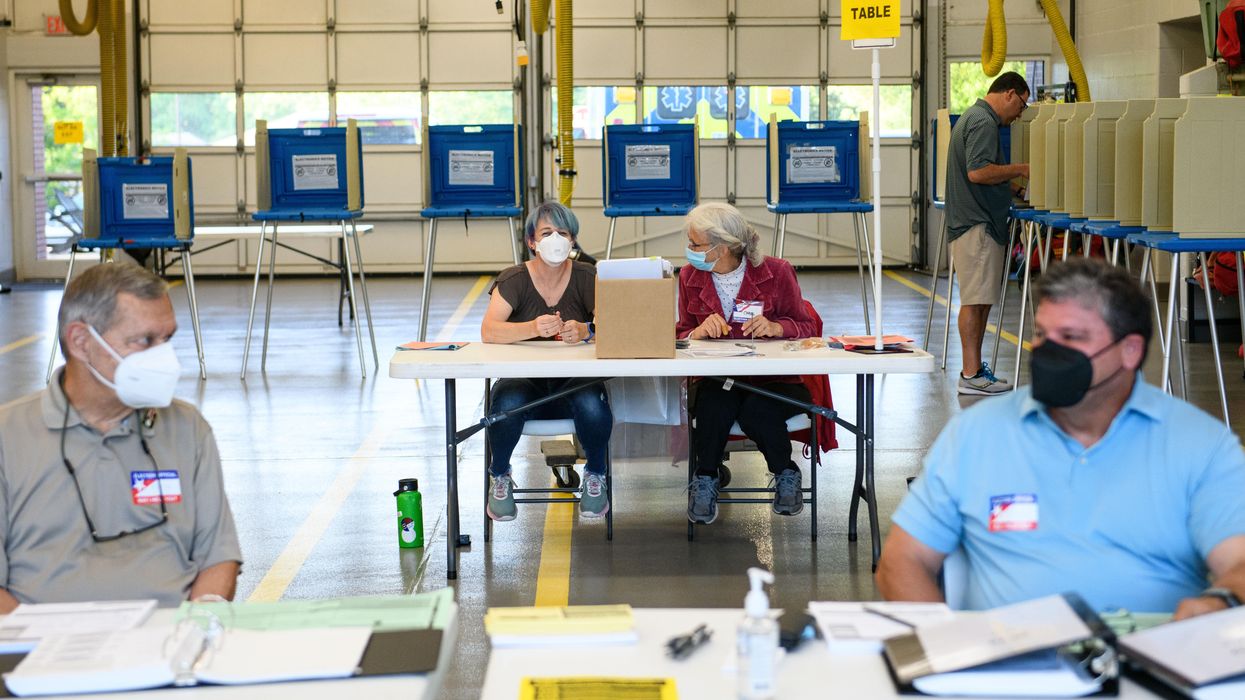Elections are the central pillar around which a democratic republic is built — the manifestation of citizen representation in government. And yet, local governments put the funding of election administration on par with parking garages, and the federal government only chips in when there’s a crisis.
That’s the conclusion drawn from “ The Cost of Conducting Elections,” a new report issued by the National Institute of Civil Discourse’s Common Sense American program in conjunction with the MIT Election Data and Science Lab.
This report examines the challenges and sources of election funding, focusing on the past 20 years. It also considers the role of the federal government in election funding and recommends a more consistent model for financial support.
Elections incur both short- and long-term costs. Yearly costs include printing of ballots and information materials, salaries of temporary election staff, rental of polling places, and postage for mailed materials. Longer-term costs focus on maintaining election infrastructure and include maintenance of the voter registration database, testing and securing voting equipment and computer systems, and training election officials.
Local governments bear most of the fiscal burden of running elections, totals that can be difficult to calculate given the variety of ways state and local governments develop budgets and account for spending. Still, based on a variety of sources such as research conducted by the University of North Carolina-Charlotte and a paper prepared by the Election Infrastructure Initiative, the report estimates that local governments spend about $5 billion each year on elections.
This makes up a miniscule percentage of the $2 trillion local governments spend per year—about on par with the amount spent on managing public parking facilities.
That’s one of the reasons “election administrators have described themselves as the least powerful lobby in state legislatures and often the last constituency to receive funds at the local level,” according to a 2014 report issued by the Presidential Commission on Election Administration.
Though local governments are largely responsible, state governments often contribute to election spending. A few states, such as Alaska and Delaware take primary responsibility for running and paying for elections, while others contribute funds proportional to the number of state offices on the ballot. One important task that falls to states is maintaining a statewide voter registration system. Additionally, though states sometimes help with the costs of new voting equipment, replacing outdated voting equipment is often difficult as few state or local governments have funds specifically earmarked for capital purchases.
The federal government also provides money for elections, although such funds accounted for only about 4 percent of election spending between 2003 and 2020. Federal funding thus far has been crisis-based. In the last 20 years, money has been allocated three times — through 2002’s Help America Vote Act, which approved funding to improve election administration; the money appropriated by Congress in 2018 for election cybersecurity in light of concerns raised about the 2016 election; and via the 2020 CARES Act, which offered funding to offset additional costs caused by the Covid-19 pandemic, including expanding early and mail-in voting and enacting health safety measures at polling places.
These additional pandemic-related costs were also covered through philanthropic efforts, including flexible donations from sources such as Priscilla Chan and Mark Zuckerberg’s foundation and Arnold Schwarzenegger as well as in-kind donations such hand sanitizer and the use of stadiums for social-distanced voting. According to the report, some states have banned private assistance, and have not replaced this funding with increased state appropriations.
NICD’s research focuses on federal funds, considering several arguments about whether the federal government should play a larger role in election funding. The main argument against election spending by the federal government is that elections are “strictly a state matter.” The report then offers several rebuttals to this idea:
First, the federal government should cover some costs because it requires that states hold elections and has imposed additional costs through mandates through legislation such as the Military and Overseas Voter Empowerment Act and National Voter Registration Act. Indeed, elections have been referred to as the first unfunded federal mandate, per the report. Next, about half of all voters say they are “federal-only” voters who often fail to cast ballots in state- or local-only elections. Finally, foreign interference in elections has emerged as a national security threat.
The report presents several ideas for increasing federal election funding:
- Instead of being crisis-based, it could be based on a set rule, such as an amount equal to one-third of election costs.
- It could be based on the amount of space federal offices occupy on ballots, known as ballot “real estate,” or on the proportion of “federal-only” voters, likely in the range of one-third to one-half of all voters.
Regardless of the method chosen, it is important that federal funding becomes a regular appropriation in the federal budget, according to the report, so local governments know what to expect when building their budget . The researchers also suggest an application-based grant system or a set amount of money to be used over time for capital expenditures such as voting equipment and computer systems.
Additional suggestions for how the federal government could assist election administration include funding research into election spending, which would allow researchers a better understanding of where election funding comes from and how it is used. That would improve administration and “recount insurance,” which would lower costs for states to conduct recounts or post-election audits.
The federal government is already moving toward implementing some of these suggestions. President Biden’s budget for fiscal 2023 includes a proposed $10 billion for election administration over the next 10 years. One-fifth of that total would be allocated this year, followed by $800 million to $900 million every year after. Biden’s budget also includes $5 billion for the U.S. Postal Service to expand mail-in voting.



















Marco Rubio is the only adult left in the room